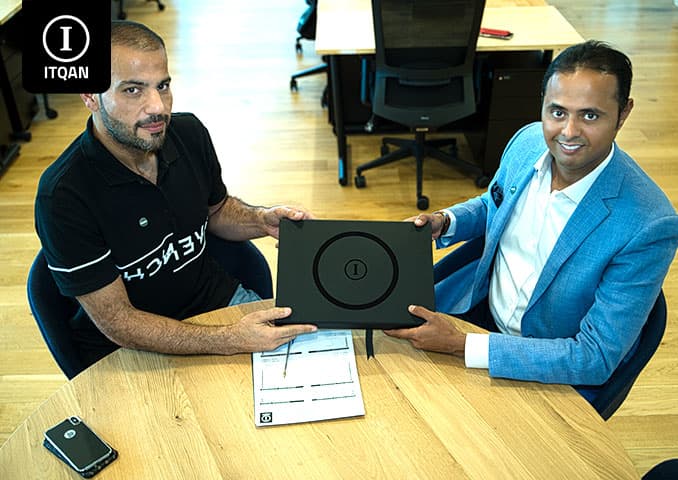The UAE is one of the most prominent investment destinations in the Middle East, offering an exceptional business environment for investors from all over the world. For Saudi investors, opening a commercial registry in the UAE for Saudis is not just a legal step, but a gateway to great business opportunities and boosting economic growth. The UAE is a vital business hub thanks to its advanced infrastructure, flexible economic policies, and diverse sectors that can be invested in.
A commercial register is the primary document that certifies the commercial activity of any company and grants it the right to conduct its business in accordance with local laws. For Saudi investors, this register is an essential step to ensure compliance with UAE legislation and facilitate the process of establishing and managing a company. The role of the commercial register extends to providing basic information about the type of activity, the legal structure of the company, and contributing to building a reliable business reputation.
In this article, we will review how to obtain a commercial register in the UAE for Saudi investors, focusing on the basic steps and necessary procedures. We will discuss the importance of the commercial register, the required documents, as well as the benefits it brings to investors in the Kingdom. We will also highlight how to benefit from the services of consulting companies such as Itqan Company, which provides specialized support in the registration and establishment process, ensuring that you make the most of the available opportunities.

جدول المحتوى
ToggleHow to create a commercial register in the Emirates for Saudis
Establishing a commercial register in the UAE requires following certain procedures and complying with local laws and regulations. Here are the general steps to establish a commercial register in the UAE:
- Choosing the type of company: You must determine the type of company you wish to establish, whether it is a sole proprietorship, a private joint-stock company, a public joint-stock company, a partnership, or a free company.
- Choosing a company name: Choose a unique name for your company and make sure it complies with local laws and does not conflict with already registered company names.
- Preparing the required documents: The required documents may generally include: a copy of the founders’ passport, a business plan, the company’s contract, insurance documents, and the required financial reports.
- Visit the Department of Economic Development: Visit the Department of Economic Development in the emirate in which you wish to establish the company to submit the company registration application.
- Paying fees: Paying the fees required to register the company and obtain the necessary licenses.
- Receiving the license: After fulfilling all the conditions, submitting the necessary documents and paying the fees, you will receive a license to practice the business activity.
- Open a bank account: Open a bank account in the company’s name to manage financial transactions.
- Securing Work Permits: Make sure you secure the necessary work permits for foreign employees if you intend to employ them.
Documents required to obtain a commercial register
To obtain a commercial registration in the UAE, there are usually a set of documents required. The specific documents may vary depending on the type of company you wish to establish and the emirate you intend to register the company in. Here is a general list of documents required to obtain a commercial registration in the UAE:
Personal documents:
- Copy of Passport: Color copy of passport for all shareholders and directors.
- Personal Photos: Recent personal photos of shareholders and directors.
Commercial documents:
- Company Incorporation Form: The company incorporation form that contains information about the company and shareholders.
- Company Contract: A copy of the company contract that shows the details of the company and its organizational structure.
- Business Plan: A document that outlines the business plan and financial goals of a company.
- Ownership Documents: Documents proving ownership of the location where the company will be headquartered.
Financial documents:
- Financial Reports: Financial reports that demonstrate the ability to finance business operations.
- Proof of financial source: Documents proving the source of funding used to establish the company.
Additional documents:
- Work Permits: If you intend to hire foreign employees, you may need the necessary work permits.
- Business License: The business license for the activity that the company will carry out.
Costs associated with obtaining a commercial registration in the UAE
Obtaining a commercial registration in the UAE requires dealing with a set of associated costs, which can vary based on the type of activity, location of the company, and size of the business. The main costs include:
1. Basic registration fees: These fees are paid when submitting the application for registration to the commercial register and are considered one of the first costs that the company must pay.
2. Licensing fees: After registration, the company needs to obtain a commercial license that allows it to practice the activity. These fees vary according to the type of license and the required commercial activity.
3. Office rental fees: One of the basic requirements for registering a company is to submit a lease contract for an office. Office rental costs vary according to the location and size of the office.
4. Advertising and commercial advertising fees: Costs may also include fees for publishing the company’s name in newspapers or official platforms as part of the registration process.
5. Document and paperwork costs: These costs include collecting and preparing the required documents such as passports, visas, and business plans, which may require notarization and translation services.
6. Legal and commercial consulting fees: Companies may need to hire specialized lawyers or consultants to assist them with legal procedures and preparing the required documents, which leads to additional costs.
7. Renewal and update costs: After obtaining the commercial register, companies must pay fees to renew the register and update any information related to the company periodically.
8. Additional service fees: These include other costs such as banking services to open a company bank account, social insurance, and any additional services that may be necessary.
Tips for Saudi investors to succeed in their business in the UAE
Here are some important tips for Saudi investors who want to succeed in their business in the UAE:
- Market research: Carefully study the local market in the UAE, understand customer needs and local economic and cultural trends.
- Local Presence: Establish a strong local presence through a local branch or partnership, which helps build trust and expand your network.
- Know the rules and regulations: Make sure you understand the commercial rules and regulations in the UAE and ensure compliance with them at all times.
- Local Partnerships: Leveraging local partnerships to facilitate integration into the local market and provide support and guidance.
- Building relationships: Invest time and effort in building good relationships with business partners and local customers.
- Market effectively: Adopt local market-oriented marketing strategies to ensure that your products or services reach your target audience.
- Information Technology: Use technology effectively to enhance your operations and increase business efficiency.
- Hire local staff: Hiring local staff can help orient you to the local market and work culture.
- Continuous Learning: Always stay up to date with the latest developments in the market and industry, and be prepared to adjust your strategy based on changes.
- Sustainability: Focus on sustainability in your business, and ensure that your business adheres to sustainable practices and social responsibility.
In conclusion, it is clear that obtaining a commercial register in the UAE is a vital step for the success of commercial projects, especially for Saudi investors who wish to benefit from the encouraging business environment provided by the country. The process of obtaining a commercial register may be complex, but with good planning and appropriate support from specialized consulting companies such as Itqan, challenges can be overcome and procedures can be facilitated.
With its extensive experience in the UAE market, Etqan helps simplify the registration process and provides precise guidance to ensure compliance with all laws and regulations. By providing expert advice and facilitating the collection of necessary documents, Etqan helps speed up the company formation process and provides the support needed to achieve success.
A commercial register in the UAE for Saudis is not only a legal document, but it is a testament to the company’s commitment to local laws and enhances its commercial reputation. The commercial register provides the legal basis that enables investors to start their business with confidence and expand in a thriving business environment.
The most important frequently asked questions about a commercial register in the Emirates for Saudis
What types of companies can be registered in the UAE?
Local companies, subsidiaries, joint ventures, free zones, sole proprietorships, etc. can be registered in the UAE.
What documents are required to obtain a commercial register in the UAE?
Required documents typically include passports, passport photos, company incorporation forms, company contracts, financial reports, etc.
How long does it take to register a company in the UAE?
The duration of company registration can vary depending on the type of company, the emirate, and other factors, and may take a few days to several weeks.
Do I need to have a local partner to set up a company in the UAE?
Not necessarily, as some types of companies can be established with 100% foreign capital, but in some cases this requires a local partner.
Can Saudis own and operate commercial real estate in the UAE?
Yes, Saudis can own and operate commercial properties in the UAE according to local laws.

















